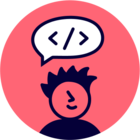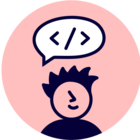Hi,
I created an app for Miro, which always users to apply some configuration.
In my app, the users can change the size of cards they drag to the board.
To increase the user experience, I want the user’s choice to be available when he uses the app again.
I wonder what would be the best/easiest way to store the user's choice.
Any ideas/proposals?
-Jens-
Question
Best way to store user's choice/configuration
Enter your E-mail address. We'll send you an e-mail with instructions to reset your password.




